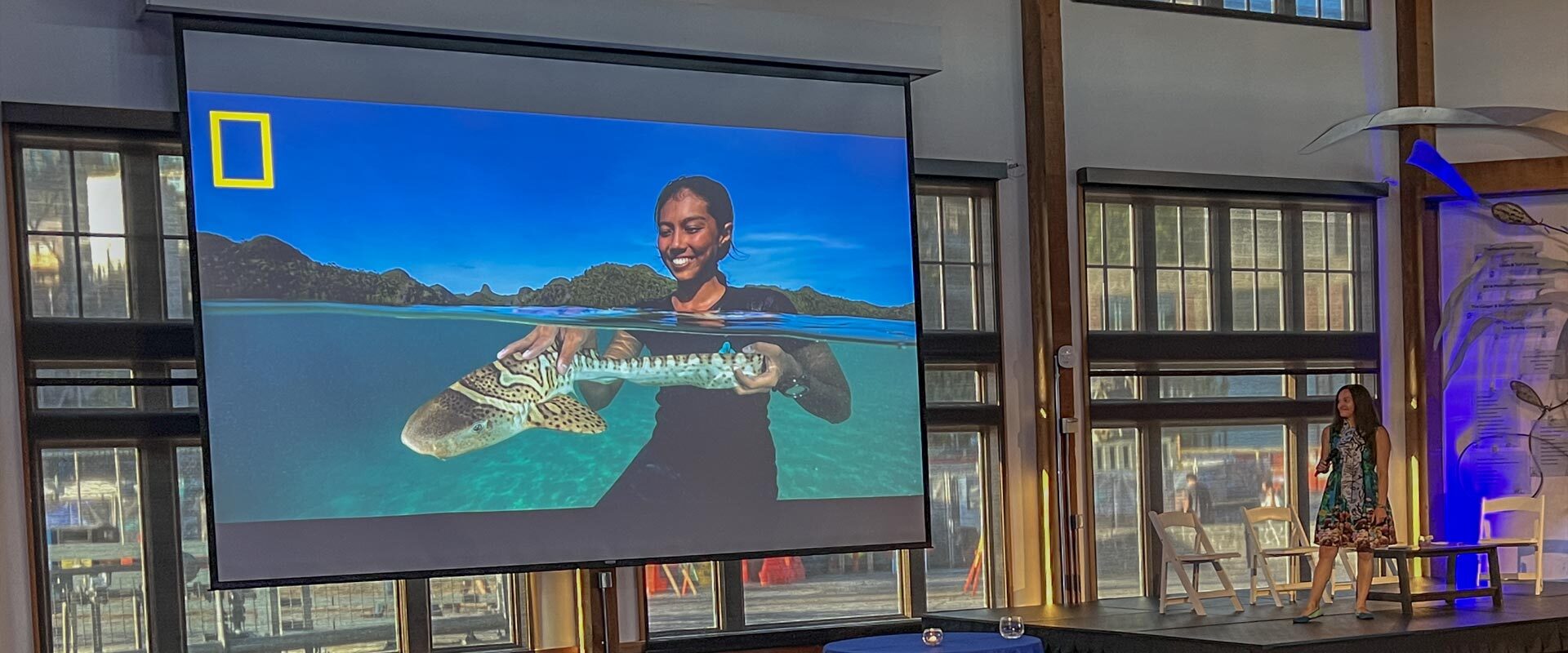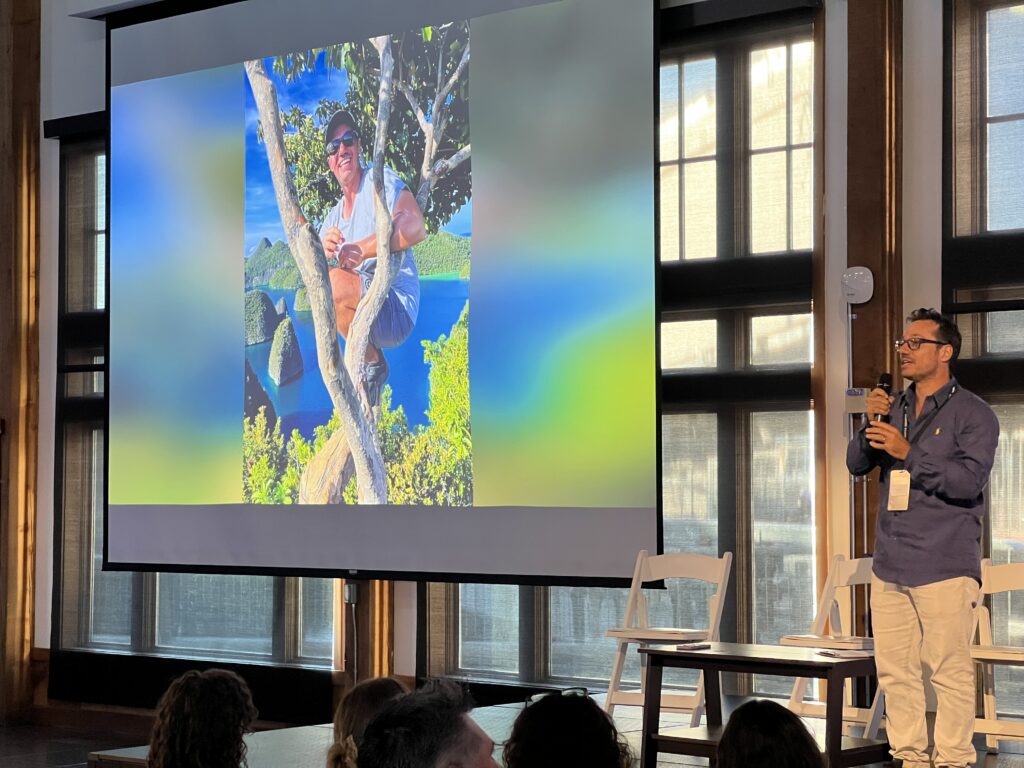ReShark and StAR: Looks to the Future at Seattle Retreat by Maurine Shimlock
Administrator’s note: This post is part of our ongoing reportage on ReShark and its pilot program in Indonesia, StAR. For more info on the projects please visit ReShark’s website. Additionally you can peruse the numerous articles on this site by simply doing a search for StAR and/or ReShark.
Banner image: Nesha Ichida during the release of the first Indo-Pacific leopard shark pup ©David Doubilet-National Geographic
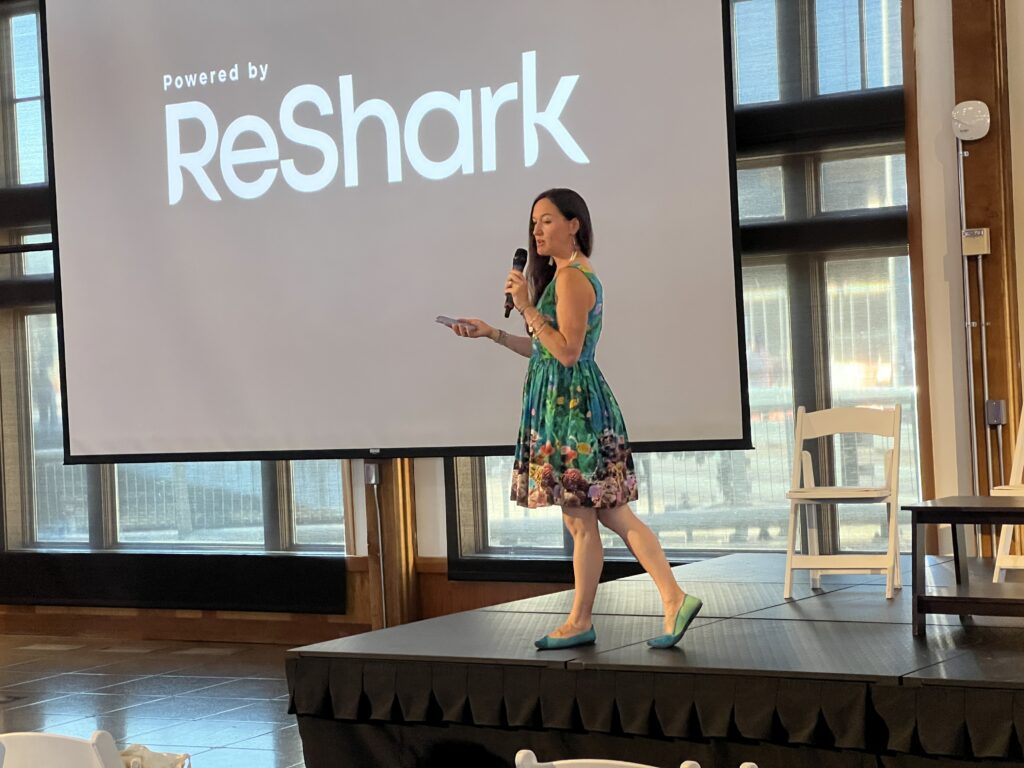
ReShark Retreat host Dr. Erin Meyer, the Seattle Aquarium’s Vice-president of Conservation Programs & Partnerships, kicks off the evening’s program
There are no shortages of conservation projects aimed at restoring marine habitats, but ReShark’s pioneering plan to reestablish Indo-Pacific leopard sharks (Stegostoma tigrinum) in Raja Ampat is one of the most ambitious. Known within Indonesia as the StAR Project and led by the West Papua Provincial Government and a consortium of international partners, including aquariums, government agencies and conservation organizations, StAR recently completed its first experimental releases of four leopard shark pups.
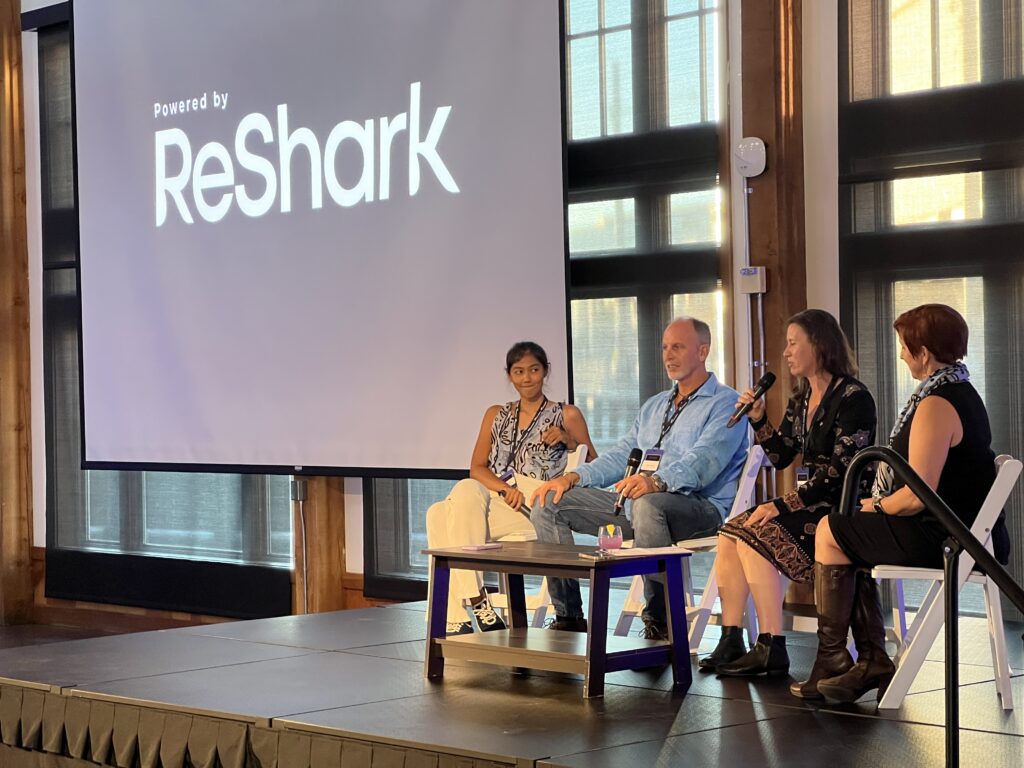
ReShark panel discussion with (l to r), Nesha Ichida, StAR program manager, and Dr. Mark Erdmann, Dr. Christine Dudgeon and Julie Henry, facilitator for the ReShark Retreat.
In early August, ReShark convened a retreat at the Seattle Aquarium to decide on the initiative’s future governance and determine which species and locations to prioritize next. Nesha Ichida, Thrive‘s StAR program manager and co-chair of StAR steering committee; Abraham Sianipar, member of StAR steering committee and ReShark council; Meizani Irmadhiany, Senior Vice President, Conservation International’s Asia Pacific Field Division and Executive Director, Konservasi Indonesia; Iqbal Herwata, member of StAR steering committee participated in the retreat, along with Dr. Mark Erdmann, Vice President of Marine Programs for Conservation International’s Asia Pacific region and over 20 additional partners from around the world.
On August 2, Dr. Erin Meyer, Seattle Aquarium’s Vice President of Conservation Programs & Partnerships, took the stage to introduce Luca Vaime and his company Indo Pacific Films‘ video about Raja Ampat’s groundbreaking shark nurseries, tagging and release programs (click HERE, to view all ReShark’s videos, including Luca’s). After watching Mali, the last shark pup released in the initial experimental program, swim freely over southern Raja Ampat’s protected reefs, the audience heard a lively panel discussion about StAR’s progress in the BHS. Dr. Mark Erdmann, Nesha Ichida, and Dr. Christine Dudgeon, whose work on Indo-Pacific leopard shark genetics forms the basis for ReShark and StAR’s critical identification of potential aquarium brood stock, explained why rewilding this elasmobranch species is critical to a healthy marine environment.
When asked what excites her about ReShark and StAR, Nesha Ichida said, “I’m most excited about the future. I want to know where these sharks go, how they live their lives, and how long it takes to reintroduce enough Indo-Pacific leopard sharks in Raja Ampat to form a viable breeding population for generations to come!”
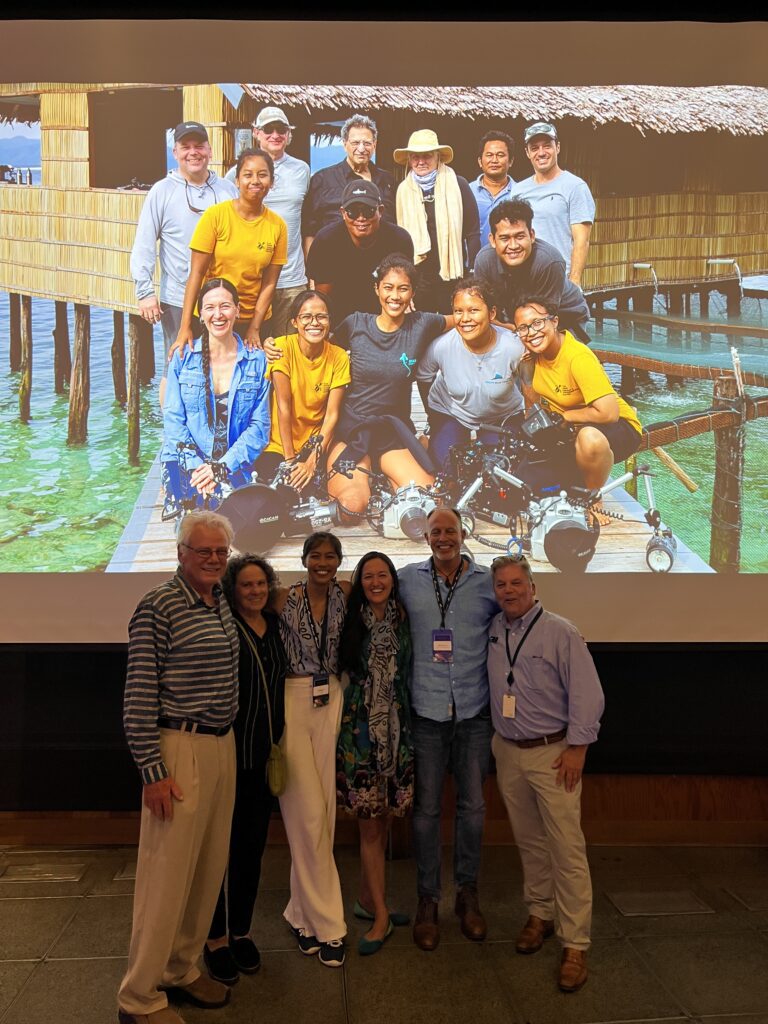
Attendees (l to r) Burt Jones and Maurine Shimlock, Bird’s Head Seascape administrators, Nesha Ichida, Erin Meyer, Mark Erdmann and Tim Kuniholm, Seattle Aquarium’s Senior Director of Public Relations and Strategic Partnerships, stand under an image of the team who filmed the release of the first Indo-Pacific leopard shark pup.
Maurine Shimlock is the Bird’s Head Seascape‘s co-administrator.





































